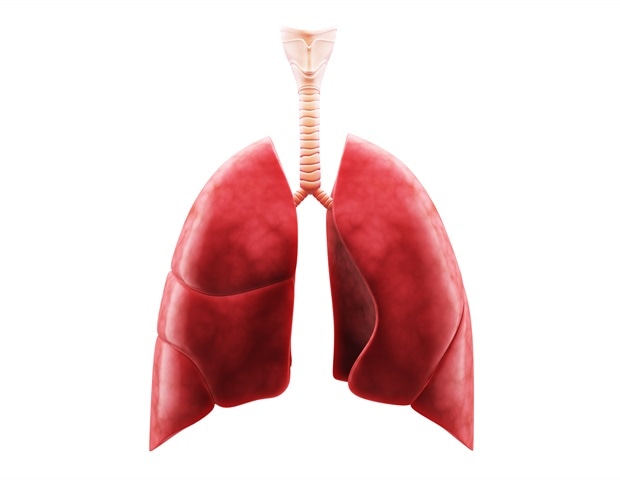Cannabis is the most widely used psychotropic substance worldwide and is the second most commonly smoked substance after tobacco.
Tobacco use is associated with reduced air flow rate and lung volume; however, this association is not observed with cannabis use. In fact, one 2012 study found no association to exist between occasional and minimal cumulative cannabis usage and poor pulmonary function.
Study: Association of cannabis with chronic obstructive pulmonary disease and COVID-19 infection. Image Credit: lunamarina / Shutterstock.com
Background
To determine the different effects of cannabis and/or tobacco, it is crucial to know the quantity of how much was smoked. Those who frequently use tobacco will typically smoke between ten and twenty cigarettes each day, whereas the average cannabis user will smoke two to three times per month.
Many people first try cannabis in their late teens or early twenties, with some continuing to use cannabis for several years at modest doses. Since heavy cannabis users were comparatively uncommon in the study population, accurate estimates of the consequences of excessive usage were not available in the aforementioned 2012 study, despite the fact that heavy exposure to cannabis may harm the lungs.
In a recent Chronic Diseases and Translational Medicine study, researchers evaluated the effects of smoking cannabis on coronavirus disease 2019 (COVID-19) test positivity, as well as potential risk factors associated with cannabis-induced lung damage and COVID-19.
About the study
Approximately 500,000 men and women participated in the United Kingdom Biobank (UKB), which is a sizable prospective observational study that was conducted between 2006 and 2010. UKB participants were selected from 22 centers throughout England, Wales, and Scotland and are still being longitudinally monitored to record any subsequent health occurrences.
Study participants were asked several questions upon their enrolment in the UKB. For example, participants were asked whether a doctor had ever informed them that they have a certain health condition, such as chronic obstructive pulmonary disease (COPD).
The subjects were then asked whether they had consumed cannabis. If the response was “yes,” cannabis usage was entered in the UKB data field. The participants were also asked at what age they had last consumed cannabis.
Subsequently, study participants were asked the frequency to which they used cannabis. The available response options included less than once a month, once a month or more, but not every week, once a week or more, but not every day, and once a day.
The researchers also incorporated COVID-19 laboratory-confirmed cases that were reported between March 16, 2020, to April 26, 2020, with the UKB data. A positive test result was regarded as a reliable indicator of severe COVID-19 during this time, as the testing of older groups was primarily restricted to individuals who were hospitalized as a result of their infection.
Study findings
The mean age of the study participants was about 57 years old. Taken together, 54% of the study participants were women, whereas the remaining 46% were men.
Increased cannabis use was associated with an increased incidence of both COPD and COVID-19 positivity. Packs-years smoking was also found to correlate with COVID-19 incidence.
Implications
In general, smoking tobacco increases an individual’s risk of lung infections like COVID-19. Although the data is limited in establishing an association between the smoking of cannabis and its effects on the lungs, previous research has shown that cannabis smoke causes respiratory symptoms such as increased cough, sputum, and hyperinflation, all of which are also observed in tobacco smokers.
In the current study, both smoking packs of cigarettes and cannabis had significant effects on the likelihood of testing positive for COVID-19. This observation insinuates that although cannabis had not been used for at least ten years, its ability to cause damage to the lungs is additive.
Although it is challenging to correctly predict and separate the consequences of cannabis usage from those associated with smoking cigarettes, smoking cannabis can nevertheless cause significant harm to the lungs.
With prolonged cannabis use, significant lung problems can develop, such as chronic bronchitis symptoms. Cannabis use has also been linked to weakened immune systems and pneumonia.
Excessive cannabis use can also worsen COVID-19 outcomes and restrict the airways. However, cannabis use may reduce lung inflammation and inhibit viral replication in COVID-19 patients, which may improve certain prognoses.
Study limitations
There are several notable weaknesses of the current study. For example, cannabis usage was only linked to positive COVID-19 test results. Furthermore, the frequency of cannabis usage and its ability to alter an individual’s susceptibility to COVID-19 was not explored.
The high prevalence of Caucasian participants may have also impacted the current findings. Future studies that incorporate more independent variables in the logistic regression would be beneficial.
Journal reference:
- Lehrer, S., & Rheinstein, P. H. (2022). Association of cannabis with chronic obstructive pulmonary disease and COVID-19 infection. Chronic Diseases and Translational Medicine. doi:10.1002/cdt3.38.







